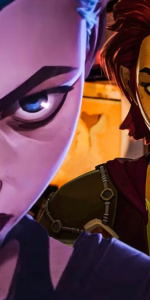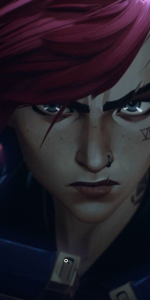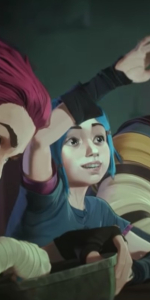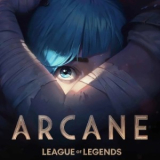


Arcane Review: A Masterpiece That Transcends Its Video Game Roots
Delving into the entrancing world of Arcane is like stepping through a portal to a vibrantly realized realm where the line between gritty reality and the fantastical blur harmoniously. Adapted from the colossal realm of League of Legends, Arcane manages to craft a narrative that is as expansive and deep as it is intimate and character-driven. The animated series, exclusive to Netflix, serves as a welcoming lighthouse for those adrift in a sea of lackluster game adaptations, its beacon a promise of rich storytelling and emotional depth.
At its core, Arcane is not a show that meanders through its plotlines with the lackadaisical pace of a Sunday stroll; rather, it approaches its narrative with a sense of urgency and significance. Each episode unfolds with a meticulous blend of storytelling finesse and character development, weaving a narrative tapestry rich with thematic depth and emotional resonance. The show dares to explore the dualities of its universe, Piltover and Zaun, civilizations that represent the parallels of prosperity and destitution, and their citizens who navigate the complexities inherent in these dichotomies.
From the outset, Arcane demonstrates its devotion to its source material while asserting a distinct identity. It refuses to be pigeonholed as merely a derivative work or a marketing ploy for the storied video game. Instead, it embarks on a quest to enshrine itself as a standalone masterpiece that invites both the uninitiated and avid fans of the League of Legends franchise to experience its wonders. By achieving this delicate balance, Arcane sets a new gold standard for what an adaptation can be when approached with creative integrity and a passion for storytelling.
Dissecting Arcane's Enthralling Spell and Exposing Its Frail Incantations
Arcane's allure stems not only from its visual grandeur and narrative prowess but from the depth and complexity of its characters. Vi and Powder, two sisters bound by love yet divided by tragedy, serve as the series' emotional nucleus. Their dynamic traverses the spectrum of familial bonds, from the warmth of shared moments to the chill of betrayal and rivalry. It's through their story that Arcane presents its most profound themes of loss, identity, and the consequences of choices made under duress.
Yet, the intricate web of relationships extends beyond the siblings to include a multitude of characters, each contributing to the saga's richness. Jayce and Viktor, for example, embody the promises and perils of technological advancement. Their journey from humble intentions to world-altering discoveries becomes a cautionary tale about the moral compromises ushered in by innovation. Arcane is not content with simply showing change; it dives into the ripple effects that alter the lives of all who dwell within its universe.
Despite its brilliance, Arcane is not without its weaker incantations. Some viewers may feel that the series occasionally prioritizes style over substance, leading to moments where its visual flair overshadows the plot's progression. While the action sequences are choreographed with cinematic excellence, there are instances when the story's pacing suffers due to the spectacle taking center stage. Furthermore, the show's densely packed world can sometimes result in a surfeit of details that threaten to overwhelm rather than enrich the viewer's experience. As with all forms of alchemy, the quest for perfection is marred by the necessity of balance, and Arcane, while admirable, occasionally falters in this respect.
The Enchanting Echo of Arcane's Impact on Viewers
Arcane's conclusion confirms what the journey implies: a tale well-told is as enchanting as the most potent of spells, lingering long after the final credits roll. The series has etched itself into the consciousness of its audience, with viewers praising its emotional depth, intricate character arcs, and breathtaking animation. It eschews the trap of predictability, cultivating a narrative garden ripe with twists and genuine surprises that keep its fans ardently discussing and dissecting every facet.
While no show is immune to critique, viewer impressions largely overlook Arcane's minor blemishes, instead focusing on the series' ability to evoke empathy, awe, and introspection. Fans extol the emotional investment that Arcane demands, applauding its capacity to elicit laughter, tears, and contemplation in equal measure. Despite its few shortcomings, Arcane is an artistic triumph that transcends the medium from which it was born, capturing the hearts of a diverse audience that spans beyond gamers to include those who appreciate the potent storytelling power of animation.
In an age where expectations for adaptations often plummet on arrival, Arcane soars, becoming a beacon of inspiration for future endeavors. It exemplifies the potential when creators approach adaptations not as mere extensions of their source material but as canvases for innovative, standalone art. By daring to blend the arcane with the universal, the show secures its place as a distinguished narrative achievement and a beacon for the symbiosis of video game lore and television storytelling.




















Leave a comment
Your comment is awaiting moderation. We save your draft here
0 Comments